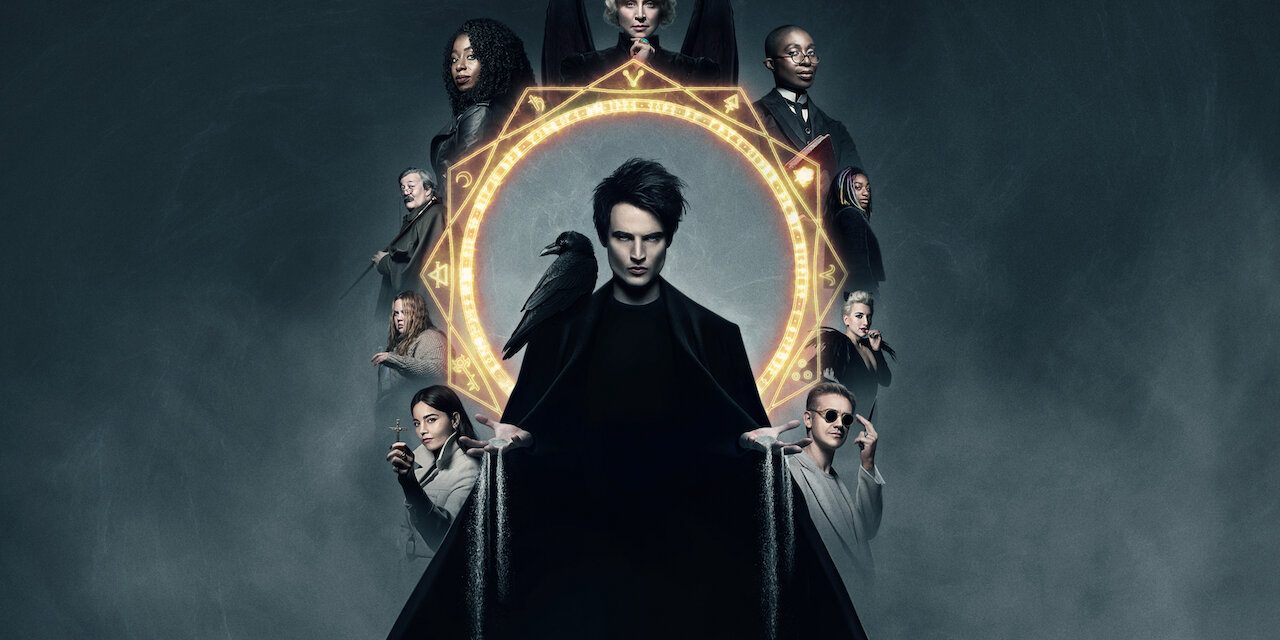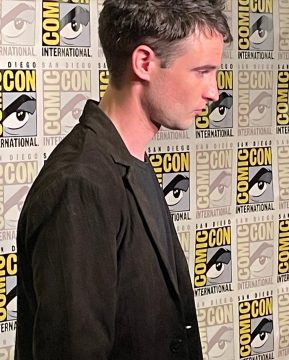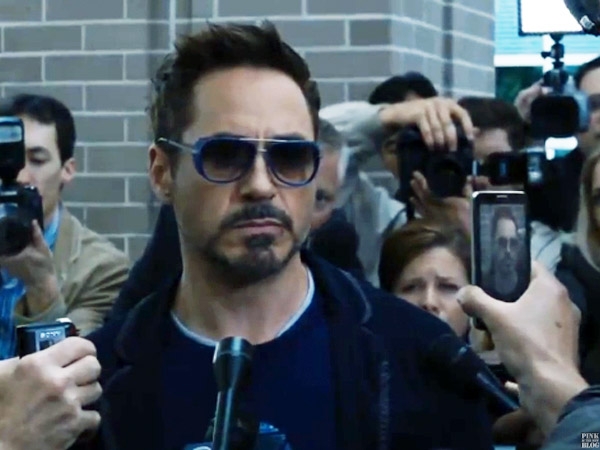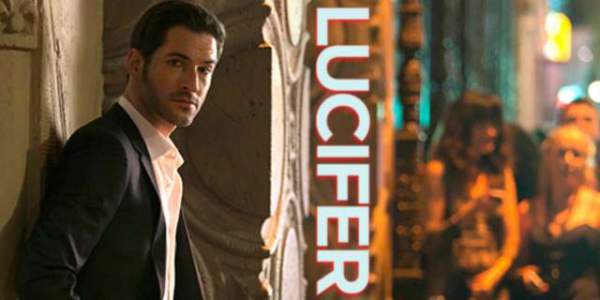You obviously play this really well-known character. One of the first things that jumps out is his voice. How did you manage to sustain that kind of deep, solid voice for so long, for so many scenes?
Tom Sturridge: I guess because I didn’t think about the physicality of it, how to create it. I thought about what Neil told me, which was that Dream should sound like the voice inside your head. He should sound like the voice that summons you to sleep. And he should sound like the voice that guides you through your fears and your fantasies. And I started to think about what that would sound like, and it was much more trying to realize that intention than about trying to have a deep voice.
I haven’t seen anything other than the trailer. It’s an amazing trailer, and I’m super excited. When I saw the trailer, I was like, “This is the guy. This is the guy.” So it is an intimidating kind of character to try to personify, and a lot of it has to do with physicality as well. So how did you think about the arc of where your character’s starting and where you’re going and tackle that? But also just mentally, you have an arc, you have a huge arc to go through.
Tom Sturridge: I mean, so I see what’s incredibly bizarre about adapting a graphic novel is unlike anything else, you have these images to return to… But so with realizing the physicality, a lot of the ideas were generated quite literally from looking at these images and finding ways to make them breathe and move. The arc of his character, I think the most important thing within the story we’re telling in this season is the birth of empathy inside of him. I think that comes from being impotent and powerless for the first time in his existence, and suddenly being in a space where he has to think about who he is.
And most importantly, he requires the help of humans to regain that power. To find his tools of office. He needs Johanna Constantine. He needs Matthew, who is a human inside a Raven. He needs to understand how John Dee feels, to try and win back that ruby. And then, most importantly, his sister Death teaches him how important it is to feel how other creatures feel because that’s the only way you can take them into the afterlife. And I think that education really changes him and opens him up, changes his relationship with Lucifer, changes the way that he deals with dreams and nightmares who have betrayed him. Yeah. I think the key arc is him opening up the insecurity he has, and starting to feel how other creatures feel who aren’t him.
Neil always says that Dream’s most important title is Prince of Stories and I just wanted to know, what does that mean to you, both for the character and in general? As a storyteller, as an actor, what is it about…? And this is a story about stories. Talk about that power.
Tom Sturridge: One of the most important things to me about Sandman is exactly what you just said. It is a story about stories. Although it has a cohesive narrative, it’s about how the stories we tell each other inflict themselves upon our lives and upon our dreams. Neil Gaiman is a storyteller. I am just a prop in that way..
I think what’s really important is for large groups of people to bear witness to the same stories because I think we are all different and we all think differently and react differently, but we can only really understand each other if we talk about the same things. Does that make sense?
Like if we all go and watch Sandman together, we’re all going to think entirely different things about it. But there’ll be a bond in us talking about what we think about it. And that’s why stories began around campfires. That’s why they continued into theaters. And that’s why they went to the cinemas because it’s about people being in a dark space and listening.
Like recognizing something that’s not from their own experience.
Tom Sturridge: Exactly. Yeah. But then, talking about it with a person next to them who potentially also has had a different experience.
Do you think Dream has that lesson to learn because he’s been sort of jaded by his own realm or his own existence? Or what does it mean to him?
Tom Sturridge: I think it’s complicated. I think that Dream contains… He contains the fears and fantasies of every single being in the universe, which means he does understand how other things, creatures, feel, but he has to hold it inside. And his burden is this kind of discipline that he has to have, and that’s why he seems so enclosed. And I think what he needs to learn is how to open up so that he can better understand what his responsibilities are.
If he felt everything that everyone who’s ever existed ever felt, it would be too much.
Tom Sturridge: Too much. Exactly. So you have to hold it in. That’s why he seems so insolated.
And then in terms of when we first meet Dream, obviously he’s been imprisoned…been through a lot. How would you describe his sort of emotional state in the first episode? And also for you, having to do those kind of naked, vulnerable scenes, how did you feel filming those?
Tom Sturridge: I think I probably felt relatively similar to him. The glass sphere that they constructed took such a long time to break apart, to get out, that actually I would spend hours in there because otherwise it would just slow down the shot so much. So genuinely felt imprisoned. But I think it’s the first time in his existence that he’s become powerless, or at least significantly less powerful. And I think that that is… if not frightening, it’s a cause for contemplation. I think he’s angry. I think he wants vengeance. I think that there is danger and a violence in him, a need to destroy those who have done this. And I think that’s the energy that begins the journey. But as the key episode, episode six, when he talks to Death, he’s fueled by this vengeance, but it leads nowhere. What was exciting for him was a quest, and the moment the quest is completed, he feels empty. There just has to be something more than hate.












